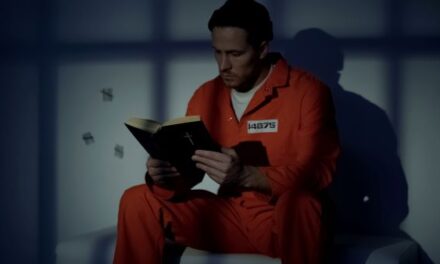Cone of Misdirection
By Tim Tron
Burke County
It was early. For the most part, the campus was quiet. A gentle glow on the horizon indicated that dawn would soon be upon us. Deciding to cut through the dining hall walkway and forgo running the labyrinth of construction equipment and scaffolding on the opposite side of the building, I approached the dining facility, hoping the doors would be unlocked by now, making the journey to my car much shorter. Much to my dismay, the construction cones and yellow tape were still stretched across portions of the steps leading to the entrance. It had been several weeks since the roofers were working above the access area, securing the area to protect pedestrians from falling debris. Yet, they had not bothered to remove the barriers below after finishing. It struck me in a bit of agitation that nobody had taken the time nor possibly questioned why there was an impedance to the doors, causing traffic to circumnavigate up the handicap ramp instead of using the stairs. “Would it have to be me that takes the initiative to move the cones that are obviously not protecting anyone from anything,” the question rattled around in my head as my footsteps brought me ever nearer. “Could it be that nobody had thought it prudent to remove the obstructions, or was it more like the naivety of the population couldn’t reason beyond the minor implications of rules imparted as being unnecessary?”
Resolved to finally take care of this issue, once and for all, I grabbed the nearest cone, taking care to wrap the yellow “Do Not Enter” tape around my arm as I reached for the second cone. Then, with humble satisfaction, placing all the encumbrances out of the way, freeing up the passage for the masses to come later.
Satisfied with my momentary victory, I looked up and saw an odd gathering. There, opposite the sidewalk from where my actions had just taken place, were seven young men sitting on the knee wall shoulder-to-shoulder. It appeared as if they were queued up for a reason, one not apparent at the moment. Then it dawned on me, “Were they waiting to get into the dining hall?” The forlorn look of hunger kept them spellbound as each imagined the other had acted to find the question that kept them collectively shackled to their seats.
Undeterred, I started for the doors, then thought to ask the group, “Are the doors locked?” The young man closest to the door answered, “Don’t know, I think so.” Not slowing in my determined motion, my hand sought the cold, silver handle and paused, “Ah, the insignificant moment of confirmation – would it appear as an impatient older man trying to get into something that was obviously closed, or would it seem as if the elder who was wise enough to know that the doors were free to all who would knock?” Indeed, at the instant, the answer was a mystery to all.
Pulling with unfettered confidence, the door gave way, and the conditioned air from within pushed past me in a flowing utterance of gratification – “Yes, thank you, Lord,” came the thought to my lips. Behind me, one of the young men said to another, “I thought you said you checked it?” “NO, you said you had checked it.” The conversation faded into disgruntled convulsions as the door closed behind me, leaving the tussled group to find their way to the entrance that had kept them in check for so long.
It then dawned upon me all that had transpired in that short span of time. Without proper guidance, those younger generations to come would not know how to navigate through life’s perils. From the sage advice of our elders, we hear the stories of success and sorrows, allowing us to live through their experiences and forgo the ills that come from not knowing what to do. In today’s Western culture, the push to become more youthful, to replace history with the less intrusive versions, leaves the coming ages less to draw from, narrowing the scope of what they have to draw from as if the three-gallon bucket at the well of knowledge has been reduced to a quart jar.
As the Apostle Paul wrote to the church in Rome some two thousand years ago, “How then will they call on him in whom they have not believed? And how are they to believe in him of whom they have never heard? And how are they to hear without someone preaching? And how are they to preach unless they are sent? As it is written, “How beautiful are the feet of those who preach the good news!”
While the vastness of the internet leads us to believe that anything we seek is available, some forces seek to filter and contain that information, forming the coming generations to the ideology and beliefs of those who code the beast. This recent development circumvents the age-old concept of relying on the elders to help shape the youth of the day by giving the perception that their experiential learning has been outdated, set aside for the more provocative and alluring ability to obtain the answer to life’s many questions from an invisible source that is beckoning to all who would ask, at the touch of their fingertips.
But back to the concept of how we are often hesitant to act on our own, relying on others, outside influences, or the forces of nature to redirect the course of our lives, for good or bad. The Bible is full of examples of people who led others—sometimes in good ways and sometimes in not-so-good ways. Being able to discern who to follow and who to avoid comes with time. Our natural inclination is to allow others to make that decision for us – going along with the crowd, as we saw with those seven young men earlier. Giving in to peer pressure and following the herd can have devastating consequences. Then there are just bad leaders, people who act not for the good of others but for their own self-interest.
Here are just a couple of those bad experiences from the Bible: Jehoram purposely thwarted God’s will by implementing his own. “He built high places in the hills of Judah, and he caused the inhabitants of Jerusalem to prostitute themselves, and he led Judah astray.” Then there was Balaam. Jesus speaks of him when he warns the church in Pergamum of their sin, “There are some among you who hold to the teaching of Balaam, who taught Balak to entice the Israelites to sin so that they ate food sacrificed to idols and committed sexual immorality.” Many more either failed to understand what it was to lead or were corrupted by the power to rule over others.
God often picked his leaders-to-be from the least expected to lead in unexpected ways. While others were frozen in their fear, those picked by God would come forward to be the ones who would stand against the barriers that would have otherwise held them captive. David, the ruddy-faced youngest son of Jesse, the Beth-lehemite, was picked by God to be the next King of Israel, replacing the failing King Saul. In one of the most widely known scripture stories, David would stand up against the Philistines alone, facing the formidable giant, Goliath. The entire Israelite army had been held in check by this one man, who had thrown down the gauntlet when he challenged just one man from God’s chosen people to come out and fight – just one. Yet, nobody came forward. It wasn’t until the backwoods shepherd boy came to deliver sandwiches to his brothers that the call would be answered. You can read about the fight in first Samuel 17, but suffice it to say it ended poorly for the Philistines. In fact, after Goliath’s demise, the entire army fled. All it took was one person, chosen by God, to stand up and challenge the forces that had stolen their liberty – their valor.
Then there’s Moses – the adopted son of Pharoh, who murdered an Egyptian and fled into the desert. He was resolved to spend the rest of his life herding sheep. However, God called Moses to lead his people out of bondage. He was hesitant to accept the position, as we all know, saying that he didn’t have the public speaking skills needed to be a leader, instead referring God to his brother Aaron. Yet, we know that God didn’t take no for an answer, and through Moses, He led the Israelites out of their captivity, breaking the bondage that had slowly grown more intense with time. They, much like many of the world’s Western countries, slowly had their freedom stripped away until they were unable to escape the chains of slavery to the system that had taken care of them for so long. Again, all it took was just one man, directed by the hand of God, to stand against the powers in charge, to demand freedom, and to remove the barriers that kept them enslaved. In the end, they, too, escaped, but not because of their own volition. It was God sending someone to act on their behalf that saved them.
And of course, there are many more stories that could be written about, but unfortunately or not, this is just a newspaper, not a novel, so we’ll end with the most important example of all – a man who stood up against the rulers of his day and would give his life to change not only the law but to make a new covenant between man and God. That man is, of course, no other than Jesus of Nazareth. Yet, unlike the other examples from the Bible, Jesus Christ was the only one sent by God himself to earth to become fully human, to suffer, to die an earthly death, and to be the propitiation for all of mankind’s sins. It was because God sent his only Son to act on our behalf that we are saved.
Left to our own encumbrances, we become tolerant of what the world has to offer. In our idleness, we sadly often choose the path of least resistance, much to our demise. When we grow in our faith and knowledge of what it is to serve a mighty God, we can see through these manufactured inhibitions and, by the power of the Holy Spirit, be awakened to act and lead others. Alone, we are nothing, but with God, all things are possible.
On a side note, three weeks later, as of the writing of this piece, the cones and tape were still where I left them that day, proof that they were definitely forgotten and no longer needed.
Be willing to stand today and make a difference in the world around you. Whatever you do, be sure to act according to the will of God. When you act according to His will and not your own, you will find your life’s pathways parted, like the Red Sea, and as you pass through to the other side, others will surely follow.
Approaching the cones, there was no preconceived plan to talk to the young men seated on the knee-wall. It was through the impetus to right the wrong of the cone, that brought me into the realization that there was something odd with the arrangement of students. It wasn’t until that inclination of conviction was acted upon that the next cog in the wheel began to spin, allowing me to open that proverbial door. Being sober-minded and allowing ourselves to be open to His direction often takes a course of action through one step leading to another that we can never see in advance.
It only takes one person to move the construction cone or to open a door. It only takes one person to step forward and share the Gospel with someone lost in the world who might be unsure where to go or how to get there. Today, let that person who steps forward be you.
And as always, Thanks be to God.
_____________________________________
Timothy W. Tron lives in Collettsville, NC. with his family. He is currently the Systems Administrator for the Computer Science Department at App. State. Timothy is the former Director of the Trail of Faith in Valdese, where he still volunteers and helps with tours. He is the author of a new Christian series, “Children of the Light”, with the first book being, “Bruecke to Heaven”, revised as “Bridge to Heaven”, and his recent book, being the second, “The Light in the Darkness”. He is an active blogger, artist, and musician. Timothy also has a BSEE from UF, and is a Lay Speaker. He is currently acting as the Faculty/Staff Liaison for the Ratio Christi campus ministry at App. State. He can be reached at trontw@appstate.edu You can visit his website at //www.timothywtron.com/ or see more of his writings HERE
_____________________________________






